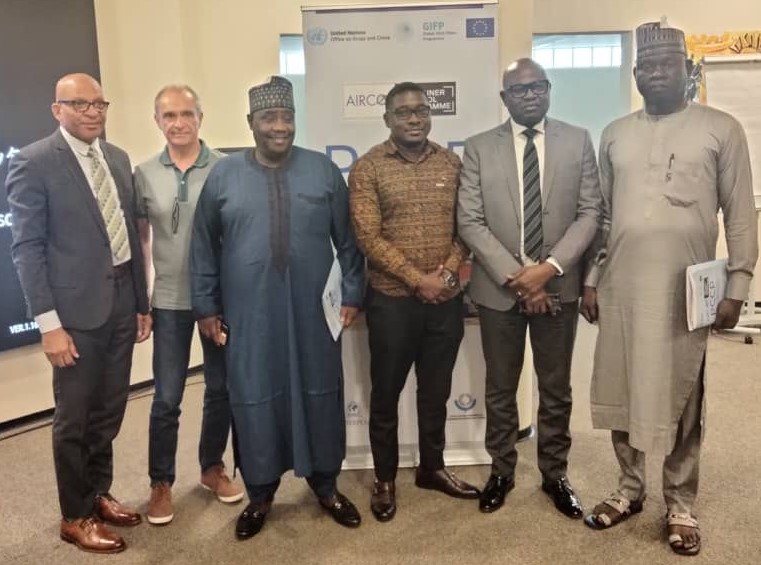By JKNewsMedia
EFFORTS TO tighten security at Nigeria’s major airports have gained momentum as selected officers of the National Drug Law Enforcement Agency (NDLEA) participated in advanced training programmes aimed at bolstering operational efficiency.
The sessions focused on the Advance Passenger Information System (API) and Passenger Targeting/Intelligence Gathering to intercept high-risk passengers, cargo, and mail linked to illicit drug trafficking.
The United Nations Office on Drugs and Crime (UNODC) organised the workshops in collaboration with international partners.
The training sessions were held in Abidjan, Côte d’Ivoire, and Abuja, Nigeria, under the AIRCOP Airport Communication Project.
This initiative, funded by countries including the United Kingdom (UK), United States (US), Canada, France, Japan, and the European Union (EU), aims to dismantle criminal networks and improve coordination among countries of origin, transit, and destination.
Participants included NDLEA officers from Lagos and Abuja airports, with the Commander of the Murtala Muhammed International Airport (MMIA), ACGN Usman Ali Wadar, and the Nnamdi Azikiwe International Airport (NAIA) Commander, CN Mohammed Ajiya, attending a six-day session in Abidjan.
Meanwhile, 13 officers from both commands attended the five-day Abuja training.
The workshops emphasised strategies for profiling passengers, analysing travel patterns, and identifying threats in real-time.
Facilitators, including Ms Fabienne Russel of UNODC and Anderson Leme Siqueira of Brazilian Customs Administration, provided expert guidance.
Tools and techniques used globally to detect and prevent the smuggling of illicit substances were shared with the participants.
Officers also learned advanced data analysis techniques, communication strategies for cross-border collaboration, and practical applications of modern intelligence-gathering technologies.
NDLEA Chairman Brig. Gen. Mohamed Buba Marwa (Rtd) commended the facilitators for their dedication and expertise.
He also lauded the officers for their commitment, urging them to immediately integrate the newly acquired knowledge and tools into airport operations across the country.
Furthermore, Marwa emphasised that the training represents a critical step in improving the agency’s ability to combat transnational crimes, particularly drug trafficking.
The sessions further highlighted the importance of international collaboration in addressing the complexities of drug trafficking.
Officers were trained to use API systems to track and analyse passenger data while strengthening inter-agency and inter-country communication.
This approach aims to disrupt the flow of illicit substances and dismantle organised crime syndicates operating within and beyond Nigeria’s borders.
Participants expressed confidence in the training’s impact, noting that the new skills would enhance their ability to profile high-risk passengers and identify emerging threats.
They pledged to disseminate the knowledge among colleagues to ensure all airport commands benefit from the enhanced capabilities.





